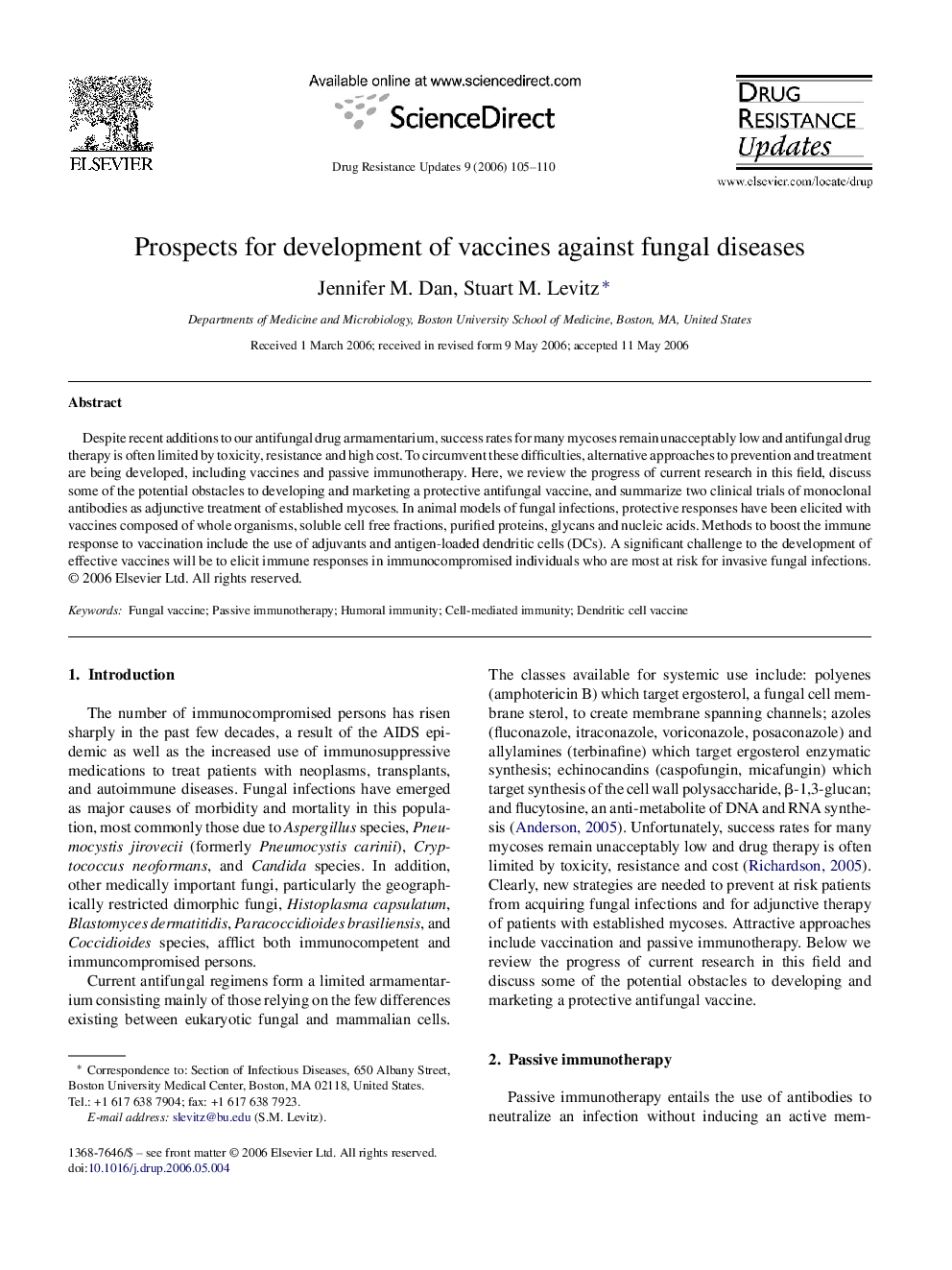| Article ID | Journal | Published Year | Pages | File Type |
|---|---|---|---|---|
| 2120566 | Drug Resistance Updates | 2006 | 6 Pages |
Despite recent additions to our antifungal drug armamentarium, success rates for many mycoses remain unacceptably low and antifungal drug therapy is often limited by toxicity, resistance and high cost. To circumvent these difficulties, alternative approaches to prevention and treatment are being developed, including vaccines and passive immunotherapy. Here, we review the progress of current research in this field, discuss some of the potential obstacles to developing and marketing a protective antifungal vaccine, and summarize two clinical trials of monoclonal antibodies as adjunctive treatment of established mycoses. In animal models of fungal infections, protective responses have been elicited with vaccines composed of whole organisms, soluble cell free fractions, purified proteins, glycans and nucleic acids. Methods to boost the immune response to vaccination include the use of adjuvants and antigen-loaded dendritic cells (DCs). A significant challenge to the development of effective vaccines will be to elicit immune responses in immunocompromised individuals who are most at risk for invasive fungal infections.
